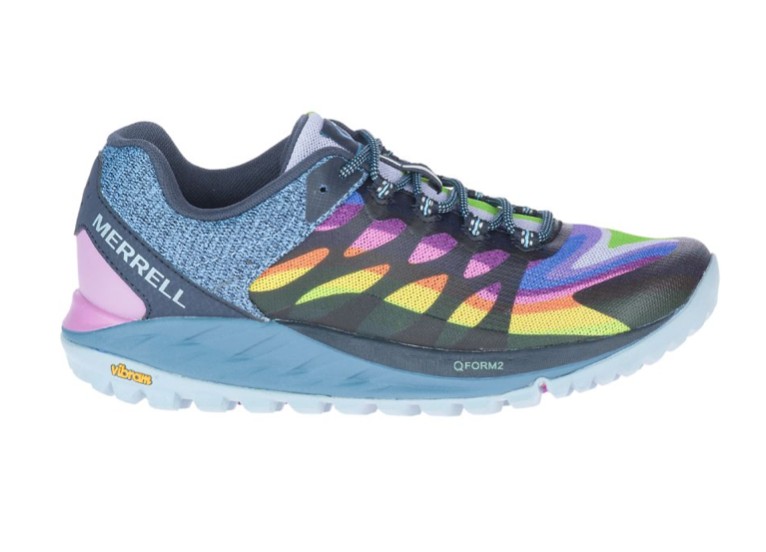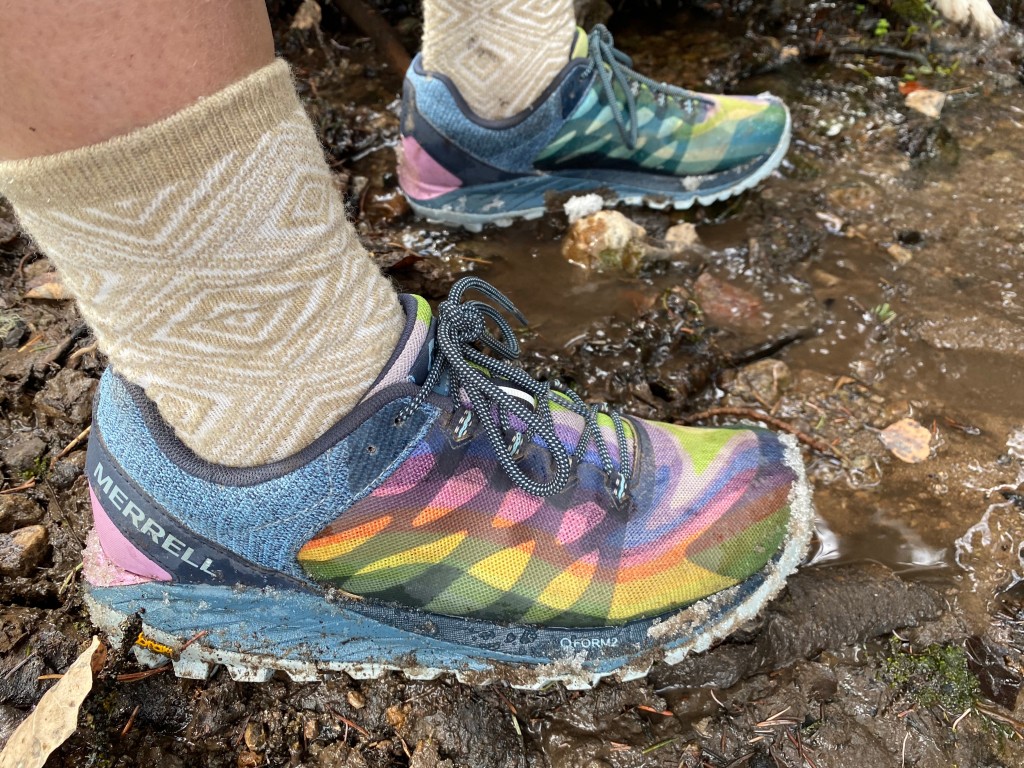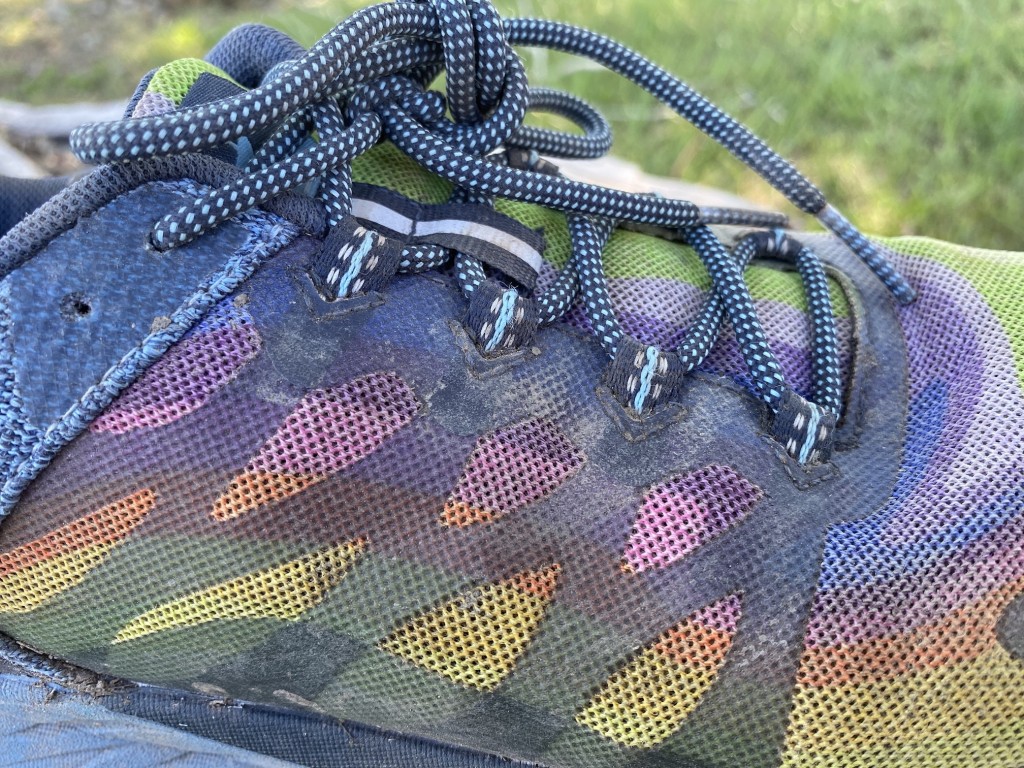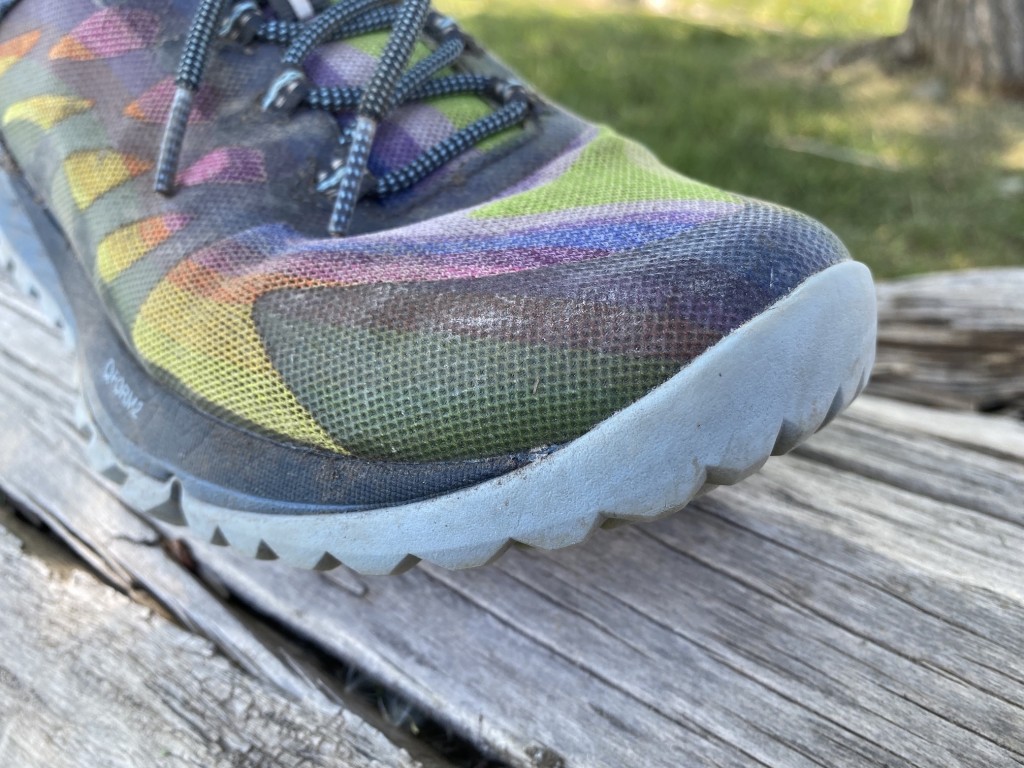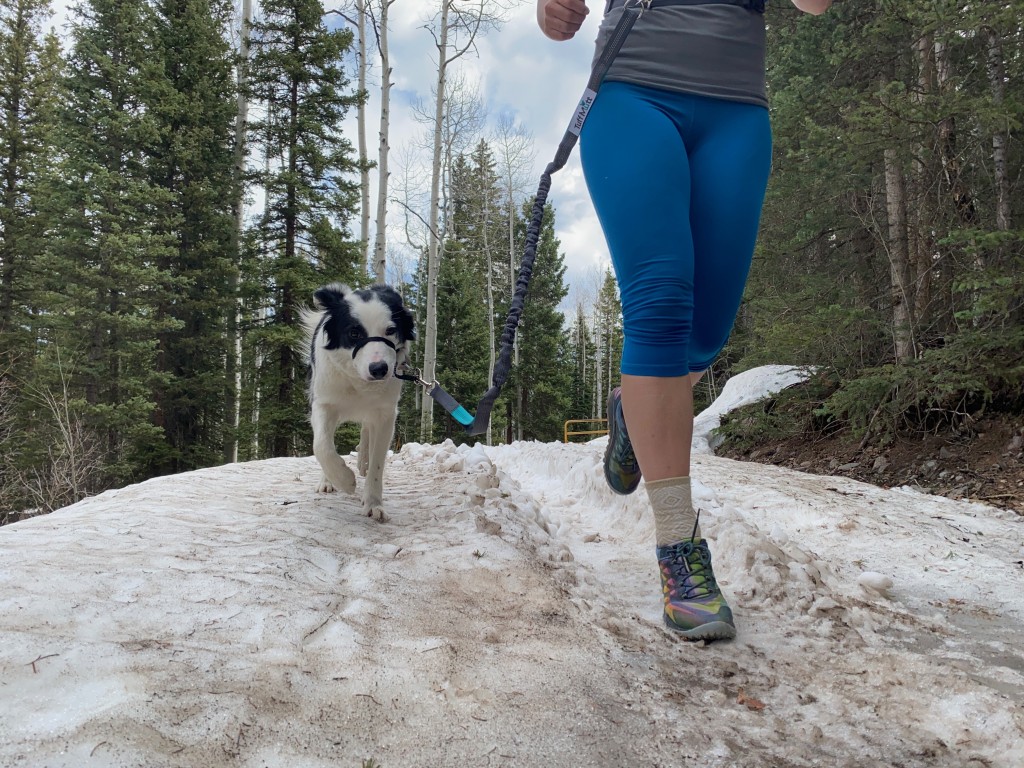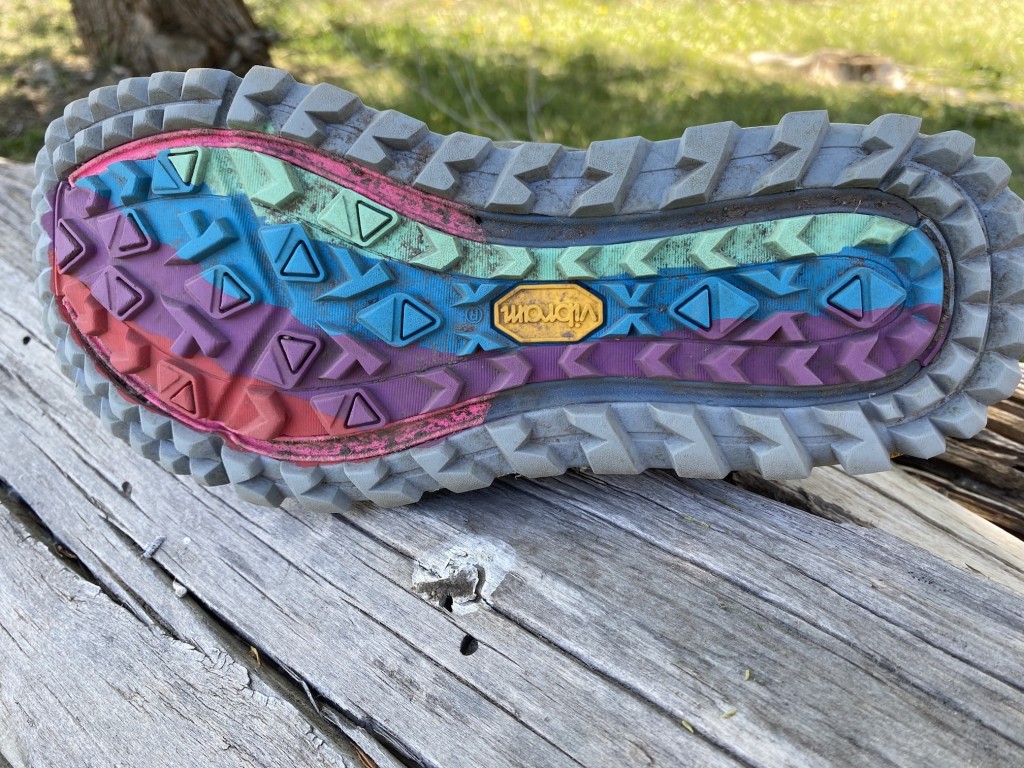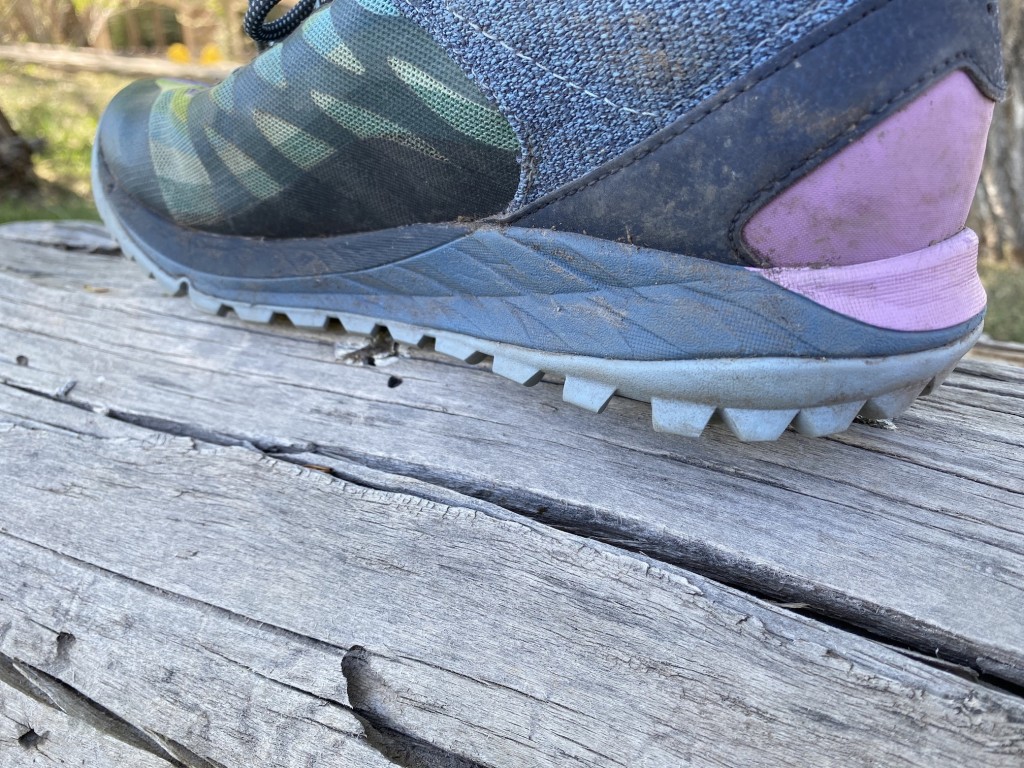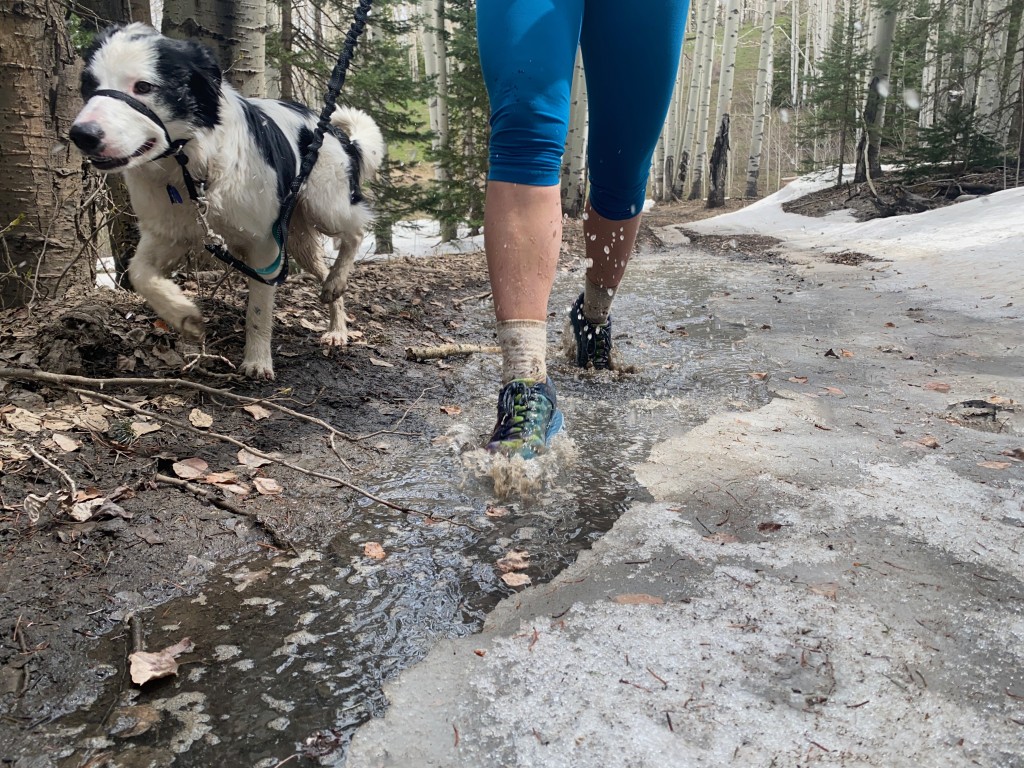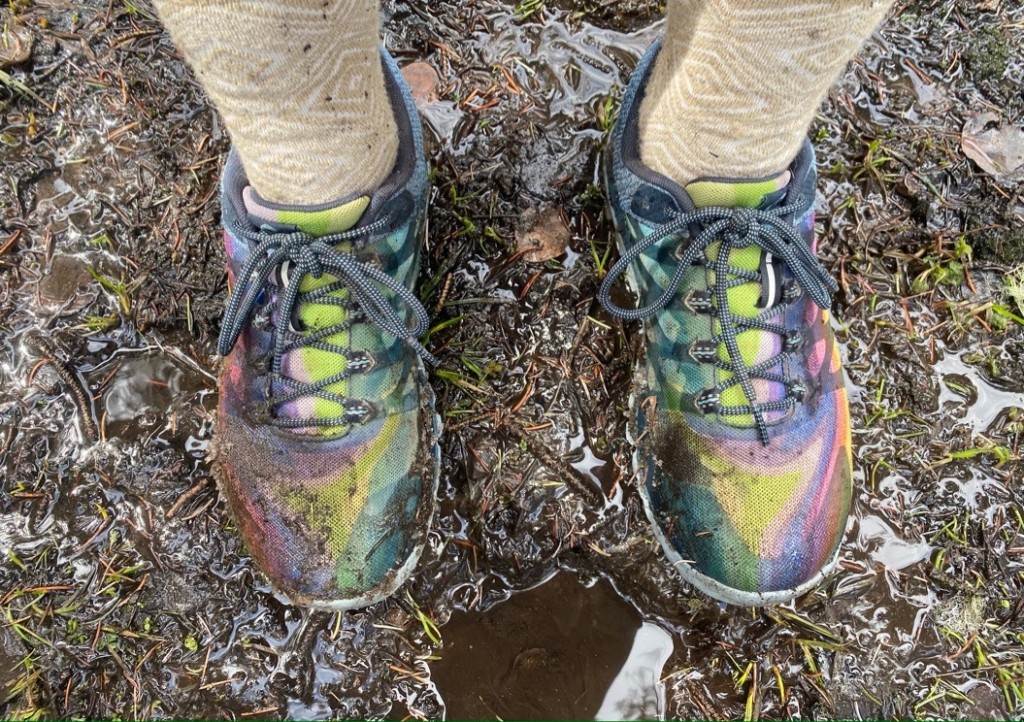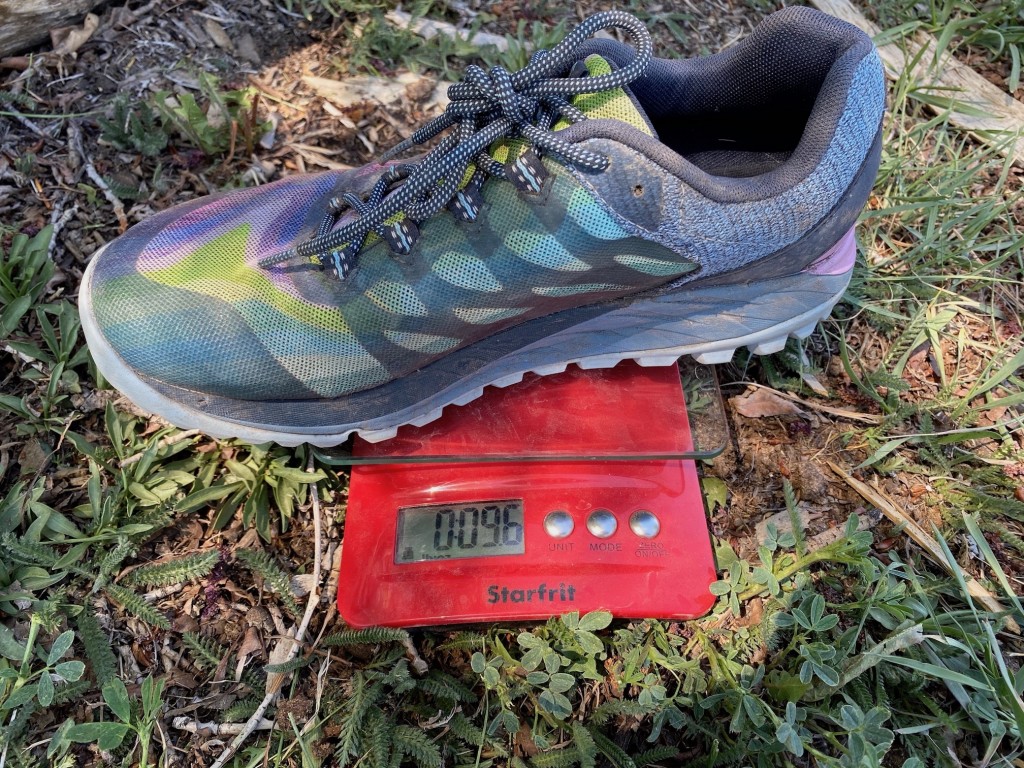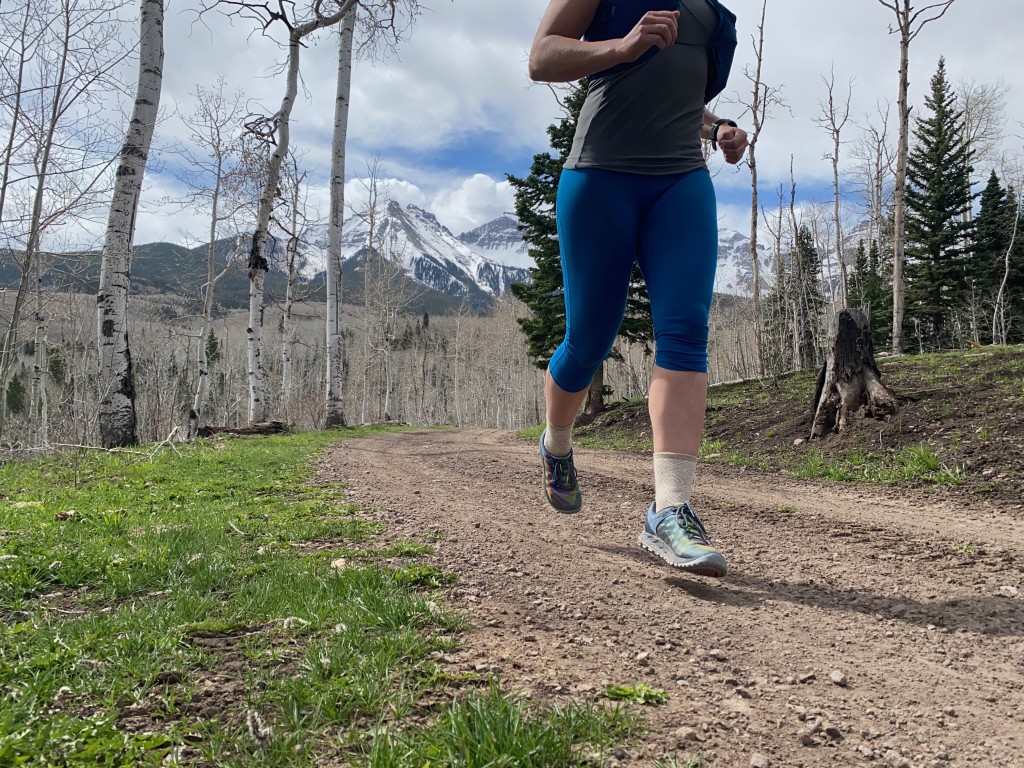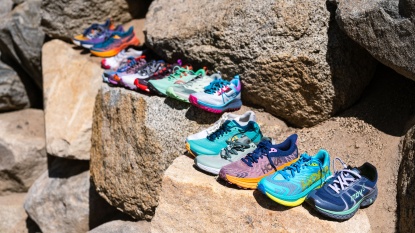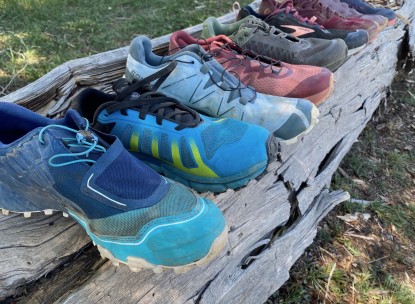Merrell Antora 2 Review
Our Verdict
Our Analysis and Test Results
The Antora 2 is a well-rounded and versatile trail runner with a lower price than most. It offers a smooth and comfortable ride with a moderate level of cushioning, and we couldn't help but fall in love with its rainbow design and excellent overall value. It comes in both wide and regular sizing options.
Performance Comparison
Foot Protection
This shoe offers a moderate amount of protection on the trail. It uses a rock plate and a hefty level of cushioning to keep feet protected from underfoot hazards. You can still feel the trail while feeling protected. Given its moderate level of cushioning, it's one we'd recommend for casual to technical trails.
Most of its protection comes in the form of underfoot cushioning. The forefoot has 20mm, while the heel has 28.5mm. Most protective trail runners have close to the same amount of cushioning, which does a good job shielding your foot on the trail, especially on longer runs. The cushioning isn't soft or plush but rigid and responsive. The integrated rock plate helps to disperse the force of impact.
The upper is also nice and protective, but it does let sand and super small particulates in, so we don't recommend it for desert running. It also doesn't have a dedicated drainage system, so it holds water when crossing rivers or getting wet. The toe cap isn't tough either. As a result of these caveats, it has a moderate amount of protection, earning a score that is only slightly above average in this metric.
Traction
The Antora 2 outsole uses Vibram TC5+ rubber, which is incredibly sticky. The lugs are measured at 5mm, performing well on most trails. Around the edges are the longer lugs, while the interior of the midsole has closely spaced lugs, about 4mm in length. We tested it across muddy, snowy, and dry trails, and it did well in most conditions.
The Vibram rubber compound sticks well to rocks and does good work while scrambling and tackling traditional trails. Pine-laden single track, rocky alpine meadows, and dirt surfaces are where it thrives. Over kitty litter, the lugs can parse through the nasty stuff to grab the hard surfaces below. It even performed well when running over muddy snow and frosty surfaces in the winter.
The only issue we had with outsole performance was during our mud shed tests. The lugs are plentiful but spaced closely together. As a result, clay-based soils couldn't release easily from the surface. Additionally, smaller rocks tend to get caught in the cracks of the tread when traveling over gravel. Aside from these caveats, the outsole does well in a plethora of conditions and over many surfaces — cross-over terrain, steeper trails, and technical surfaces — no problem.
Sensitivity
You can feel parts of the trail with this shoe, but not all of it. You know when to adjust your body for a rocky undulation to ensure appropriate positioning without sacrificing protection.
While it is stacked with EVA foam cushioning throughout the midsole, the Antora 2 is rigid, which protects and gives you a good idea of what's underfoot. If you're a forefoot striker, expect 20mm of cushioning separating you and the ground. If you strike with your heel, expect to feel a little bit less underfoot. Overall, sensitivity is average compared to other trail runners in this review.
Stability
This shoe boasts a moderate level of stability, but because of its harder EVA foam and design, it's a little less stable than most high-performing trail runners. It earned another 7 out of 10 for this metric. It comes in both a regular and wide size. We tested the wide version, which felt more like a standard width toe box. The shoe doesn't stand too high and has a nice profile which helps to protect from rolled ankles.
It loses a few points in this category because of its rigid nature. Other trail runners score higher, are slightly more flexible, and don't stand as tall. That said, for its height, the wider version provided a sufficient width to splay toes which aided in balance. The TPU skeleton wraps around the upper of the shoe, which adds structure to the fit, and makes it more stable.
The outsole isn't much wider than the upper of the shoe, meaning there is a steeper wall and thus a more significant “tipping point.” We felt like we had to take a little extra care in foot placement to avoid turned ankles when running. While we didn't experience any rolled ankles during our testing period (thankfully), this shoe doesn't feel as stable as other top contenders. It's still one we'd take on technical or rocky terrain as the foam does mold around these obstacles, but it's one you need to get used to.
Comfort and Fit
The Antora 2 boasts a wide and regular fit that feels comfortable to wear right out of the box. It's not the most comfortable contender tested, but one we'd wear to work while doing chores and during training runs. The compact EVA foam isn't very soft and squishy but responsive and firm. Some of our testers liked this, while others did not. Overall, it earned a 6 out of 10 for comfort and fit.
We tested the Antora on several runs ranging in distance from a half-mile to 15 miles. We thought it was perfect during shorter runs (3-4 miles). The wider version allows just enough room for toes to wiggle. The wide fit actually felt like a regular width, so we imagine the regular width will have a pretty narrow profile. The top of the shoe tapers to a point, so it squishes the tips of the toes together. After a few miles on the trail, we felt this acutely, especially when our feet started to swell.
The heel cup fits well, and you can cinch down the fit, so the foot doesn't slide back and forth on the steeps. One interesting thing that happened to our main tester is her pinky toe and forefoot kept going asleep after mile six — on any terrain. At first, we thought this was because the laces were too tight, but it kept happening even when we loosened them. We attribute this to the footbed being pretty rigid, with a pressure point right on the middle of the forefoot. We gave these to a friend with a more narrow foot who is a heel striker, and they had no issues. As a result, we think that the fit can be finicky. While it might work well for one person, it may not work for another. We recommend trying these out before committing, and be sure to try them with the socks you plan to run in.
Weight
This shoe has a middle-of-the-road weight, with a size 9 (wider width) coming in at 9.6 oz.
While this is far from the most lightweight shoe on the market, it still feels pretty light on the foot and isn't noticeable even after many miles.
Should You Buy the Merrell Antora 2?
This trail runner earns moderate marks in all categories with a wide range of uses. It also comes at a lower price. While it is at the lower end of the trail running spectrum for scoring (in our very competitive lineup), it has good performance, doing well in both urban and backcountry settings. It's not the shoe we would wear for an ultramarathon, but for the fledgling trail runner or those that like to log less than 10 miles at a time, it's one we love. If the fit works, this is an excellent deal that touts versatility and comfort on the trail, all at a great price.
What Other Trail Running Shoes Should You Consider?
The Merrell Antora 2 features a fun rainbow design with sticky traction and the ability to take you anywhere. Designed for on-trail use, it also does great on paths and roads. While it struggles in heavy mud and has a midsole that's stiffer than most, it's still a versatile trail runner. Despite its low price tag, some users may be put off by its lower rank in our review lineup. You would not be wrong in assuming there are quite a few other sneakers that performed better in our tests, and if you are willing to spend just a smidge more, you can get a whole lot more out of your shoe. The Hoka Torrent 3 costs marginally more and is one of our top-ranking options. It may be an excellent alternative to consider depending on your running style.


